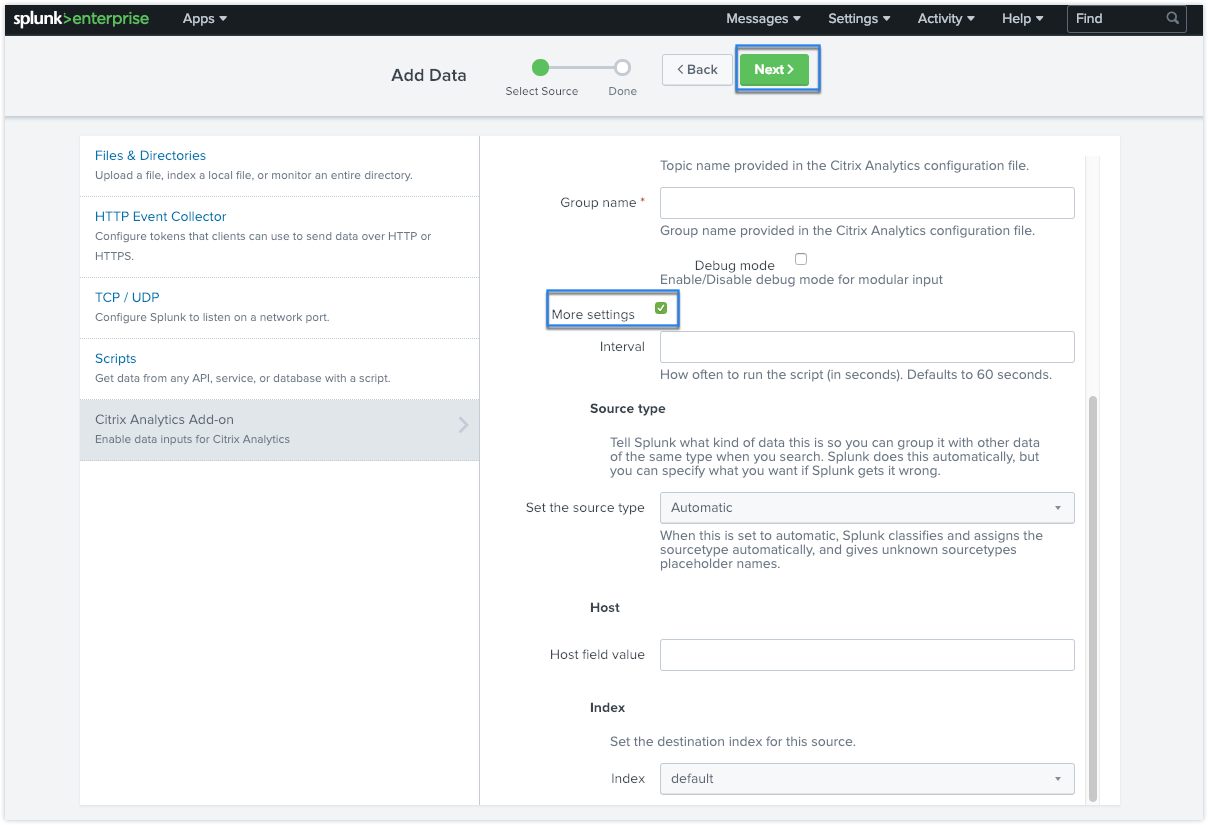
- #SPLUNK AUTHENTICATION CONF UPDATE#
- #SPLUNK AUTHENTICATION CONF UPGRADE#
- #SPLUNK AUTHENTICATION CONF CODE#
- #SPLUNK AUTHENTICATION CONF LICENSE#
In order to initialize a new search head cluster, we cannot rely solely on creating backend files. Deployment of a new search head cluster.However, this can be easily extended with additional variables (or static content) of your choosing. The current version is based on a single template that supports only the clientName and targetUri keys. Therefore, we support configuring nf for your Ansible-managed forwarders using variables. We realize that some environments may have hundreds of clientNames configured and that creating a git repository for each variation would be pretty inefficient. Configuring nf for Deployment Server (DS) clients.Please note that if you do not configure the splunk_admin_password variable with a new value, an admin account will not be created when deploying a new Splunk installation via check_splunk.yml. We are able to do this securely using ansible-vault to encrypt splunk_admin_password so that we can create a nf during the initial installation. Creation of the local splunk admin user.That said, we've made a handful of exceptions: We believe that having all configurations in git repositories is the best way to perform version control and configuration management for Splunk deployments. Instead, you will find that we have a generic configure_apps.yml task which can deploy any version of any git repository to any path under $SPLUNK_HOME on the hosts in your inventory. What do I mean by that? You're not going to find tasks for installing web certificates, templating nf, or managing every Splunk configuration possible. Third, ansible-role-for-splunk was designed to manage all Splunk configurations as code. For more information on that, refer to the configure_apps.yml task description. This is accomplished using the synchronize module.
#SPLUNK AUTHENTICATION CONF UPGRADE#
For example, if you want to upgrade an app on a search head, and your repository does not contain a local/ folder, Ansible will not touch the existing local/ folder on the search head.
#SPLUNK AUTHENTICATION CONF UPDATE#
This even applies to our app management code, which can update apps on search heads without modifying existing local/ files that may have been created through actions in Splunk Web. This means that if the system is already in the desired state that Ansible expects, it will not make any changes.

Second, ansible-role-for-splunk was designed to be idempotent.
#SPLUNK AUTHENTICATION CONF CODE#
If you want to fork this project and change any functionality, you only need to update the code in one place. This means that the project contains minimal code redundancy. Design PhilosophyĪ few different design philosophies have been applied in the development of this project.įirst, ansible-role-for-splunk was designed under the "Don't Repeat Yourself (DRY)" philosophy. For more information about Ansible best practices, checkout our related. This codebase is used by the team internally to manage our deployment, so it has been thoroughly vetted since it was first developed in late 2018.
#SPLUNK AUTHENTICATION CONF LICENSE#
It supports all Splunk deployment roles (Universal Forwarder, Heavy Forwarder, Indexer, Search Head, Deployment Server, Cluster Master, SHC Deployer, DMC, License Master) as well as management of all apps and configurations (via git repositories).

Example playbooks and inventory files are also provided to help new Ansible users make the most out of this project.Īnsible-role-for-splunk is used by the team to manage Splunk's corporate deployment of Splunk.Īnsible-role-for-splunk is a single Ansible role for deploying and administering production Splunk deployments. This role can manage Splunk Enterprise and Universal Forwarders that are on Linux-based platforms (CentOS/Redhat/Ubuntu/Amazon Linux/OpenSUSE), as well as deploy configurations from Git repositories. This repository contains Splunk's official Ansible role for performing Splunk administration of remote hosts over SSH. Ansible-role-for-splunk: An Ansible role for Splunk admins


 0 kommentar(er)
0 kommentar(er)
